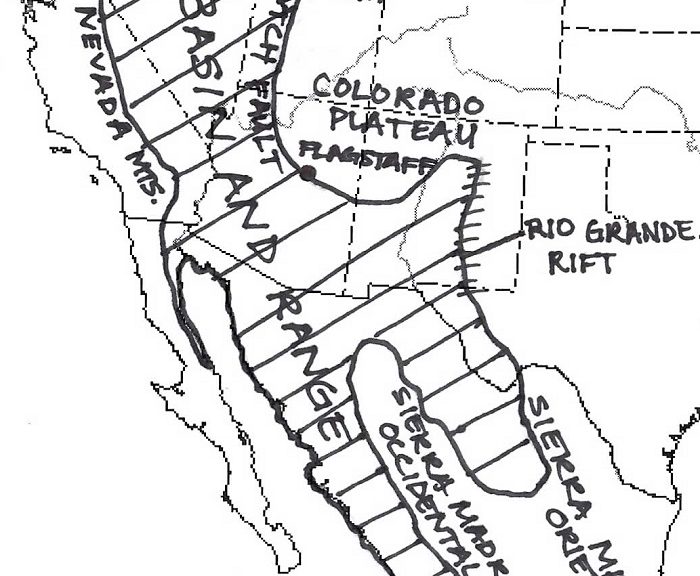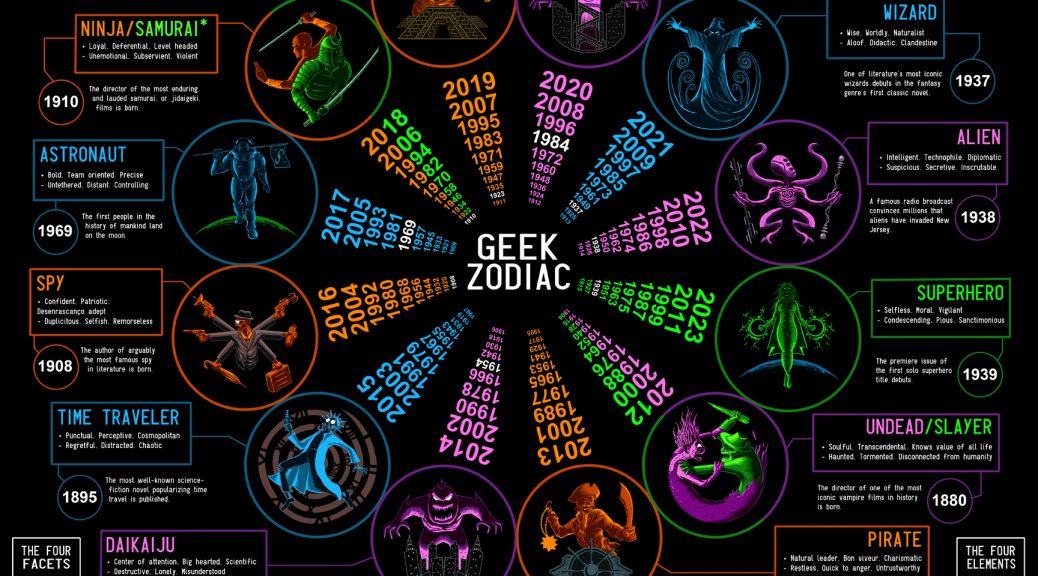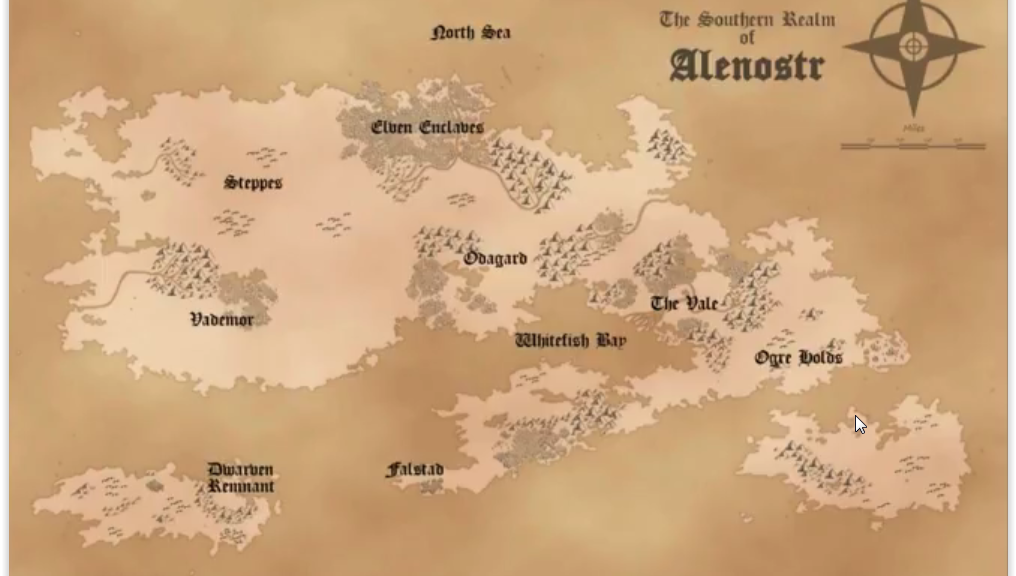The Broken Lands – This name comes from the topography that is marked by the effects of earthquakes. Earthquakes were once common in the area, but are now beyond living memory. This will make valleys, bluffs, plateaus, swamps, and any other feature fit. Volcanism or other processes, including magic or gigantic creatures, could be the source of the quakes. The variation in the terrain will allow for creatures of any type. Mountains high enough for cold based creatures in summer, Wet & swampy regions, areas of mountains high enough to block the rains and have arid/desert regions.
Living memory suddenly changes with the earthquake that uncovered a buried structure. (Vault of the Broken Lands? Secret of the Broken Lands? Mystery/Mysteries of the Broken Lands?) This leads to the possible questions: Why an earthquake now,? Can the cause be determined? What is in the buried structure? This area will be the best available farmland in the area, but it is remote and off the beaten path/main trade routes. While officially part of the kingdom and claimed by one or more neighboring kingdoms, it is a march/borderland and is wild. Only the occasional bandit or ravaging monster has come around in recent years, lulling all into a sense of peace and security.
This abruptly changes the focus for the locals, the region, kingdom, and neighboring kingdoms. This is the hook that brings fresh adventurers to the area. This refreshes the minds of elders about stories of the creatures and adventurers of old.
As a new campaign, the initial setting will be centered in a human kingdom, and the first PC’s will be human. It takes time for word to spread and non-human treasure seekers (of 1st level) to show up. Non-human NPC’s of more power, whether in levels, politics, wealth, or other connections/measures will be possible.
This lets the initial players and their first characters in the campaign have a hand in shaping the way it develops.
New player characters will be average character level – 1, but no higher than the lowest level character. So if the average is 4th level, but the lowest level is 3, start at 3rd level.
Leveling up – simplified – Once have enough XP to level must return to civilization/secure and well supplied base/name level stronghold and rest up and re-supply for a week. For treasure to count for XP it has to be returned to civilization with the players.
Smoke Mountain, Smoking Mountain, Fuming Mountain, Fire Mountain, Dragon Spire, Dragon’s Spire, Dragon’s Maw
COOL! – I was thinking of a volcanism and earthquake defined region, and wanted something like Death Valley (140 miles long), and found the terms graben and horst, and then the jackpot, the Basin and Range Province. It is 170,000 square miles (for example: 500 x 340). It covers a huge area in the US southwest and northeast Mexico. It is all terrain I have never seen, except in TV and movies. But I have seen similar, smaller examples in Colorado. There are numerous features affected by volcanoes and various faults. There are plenty of barriers that would make large “uninhabited”/”uncivilized” regions, and multiple kingdoms. Having border areas on the perimeter that are the more stable heartlands of the greater kingdoms/nations, makes for the far off influence of the kings/rulers/government less immediate.
This area in the real world is home to copper, gold, and silver mining. Mountains would be a good place for dwarves, and areas of isolated forests would be good places for elves. Lost valleys of the Pleistocene, or isolated plateaus full of dinosaurs. Aliens, inter-dimensional rifts, and so forth are all fair game.
Having a bit of real world analog to help inform my imagination is helpful, but it is a game and in no way requires me to stick to the way things are in the real world.
I had another idea in the pipeline, but the idea hit me, so I put it down. I plan to take bits and pieces of my current campaign and other unrealized ideas, and make the current center of action somewhat far off from this new area. I have ideas that I didn’t leave a good place for in my original campaign concept that was more top down than bottom up design. I need a different map for my original campaign anyway, it didn’t fit for how I was trying to use it. It didn’t impact the players, but it didn’t really fit for what was developing in my mind’s eye. It’s a great map my brother did for me, but it didn’t afford all the cool terrain that I wanted available for all the things I want to do. I want just enough map detail for a starting area, and a general concept of what is around it, so that there is flexibility to make a place for the specifics that grab the player’s interest.
Having the geologically active region known from the start makes it easy to have some sort of geological activity happen to alter the landscape or reveal something new. This makes the world living in a sense that there is more rapid and long-lasting change to its appearance than in other locations.
Just writing out notes in my preferred text editor, NoteTab*, the ideas just don’t want to stop. I keep jotting down notes of cool ideas that I don’t want to forget. Just when I think I’m done, another idea pops into my mind. It’s great to have the creative juices on overdrive, but not when it is time to go to bed. Even though I have what is now today off, I still need to get sleep and deal with the requirements of adulting.
*See these past articles where I discuss NoteTab. Software, Notes, 30 posts in 60 days [I forgot about this one.], Tools, Written vs. Typed, and NaNoWriMo. I even have my name in the acknowledgements of the help file for my contributions to testing over the years. I don’t want to take the time to learn how to do all the things in another editor that I can do with NoteTab, as I have better things to do.






